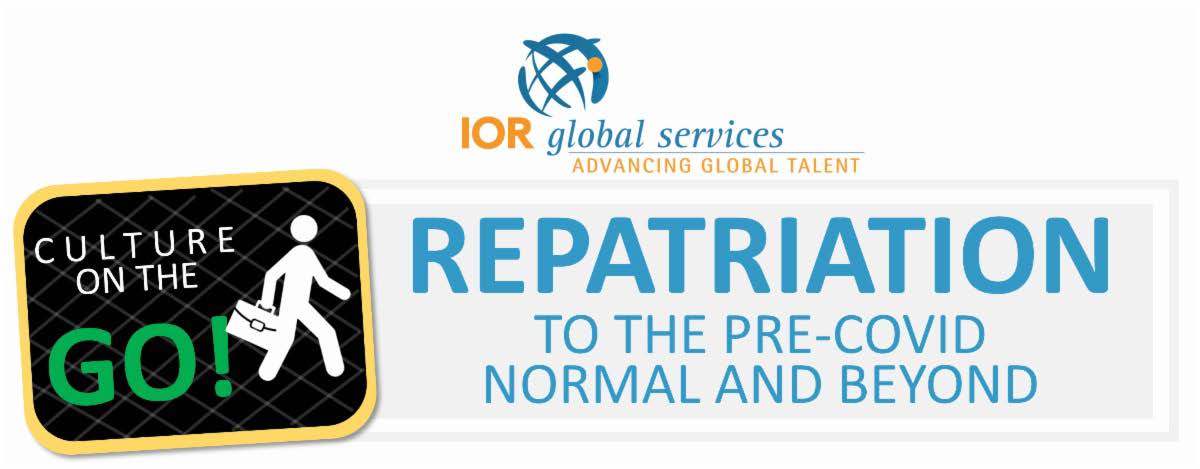
In the cross-cultural field, the word repatriation first and foremost means “returning to the country of origin after spending time living and working abroad”.
It also means returning to a sense of “normalcy”, to a familiar environment, expected behaviors and outcomes as well as one’s own comfort zone. Apply this to the current situation and the global COVID-19 pandemic, where many countries are seeing a return to normalcy, including a return to the office, going out to concerts and sporting events, and gathering with friends and family in a tangible, multidimensional world. Sounds great, doesn’t it? However, repatriation frequently leads to
irritation, loss of identity, and social and professional challenges. Tools from Repatriation Training can be used by companies and individuals to leverage the experience and growth achieved while on assignment.
Whether returning to one’s home country or to the pre- Covid routines, the immediate honeymoon phase is followed by the cultural disorientation with concrete symptoms that affect physical, emotional behavioral and relational aspects.
Here are some examples:
Behavioral Symptoms
- Ineffective work patterns
- Inability to make decisions
Emotional Symptoms
- Boredom / Irritability
- Anger / Depression
Relational Symptoms
- Tension & conflict with
family - Impatience with nationals
Physical Symptoms
- Chronic fatigue
- Weight gain / loss
These symptoms may result in feelings of insecurity and uncertainty, leaving individuals longing for predictability and reliable time-proven processes. When returning home from another country the expatriates and their families are offered a Repatriation Program with a key message to approach the new move as going on yet another adventure rather than going back home:
Taking time to process past experiences, getting re-acquainted with colleagues and the office environment, and looking for new activities that allow access to the international communities at home are some of the ways to expedite the “coming back” process.
Additionally, and arguably more importantly, we need to give ourselves and our colleagues time to return gradually and to identify new skills, knowledge and solutions that can be used going forward and/or replace old routines.
Being jolted out of one’s comfort zone by either an international move or a global pandemic provides a unique opportunity to acquire valuable experience, a more global outlook and practical skills which can be successfully leveraged in professional and social settings upon “returning”.
Providing a Repatriation Program is one of the best ways companies can not only retain talent in which they have heavily invested, but to also capitalize on the knowledge their employees gained while abroad. The “culture shock” of the global COVID-19 Pandemic has highlighted the great capacity of organizations and individuals in terms of resilience, resourcefulness, and ability to both innovate and empathize. If organizations and individuals leverage these lessons when returning to the office, there is a great opportunity for improved communication and productivity.
To learn more about the repatriation process and steps to facilitate a successful transition home…
